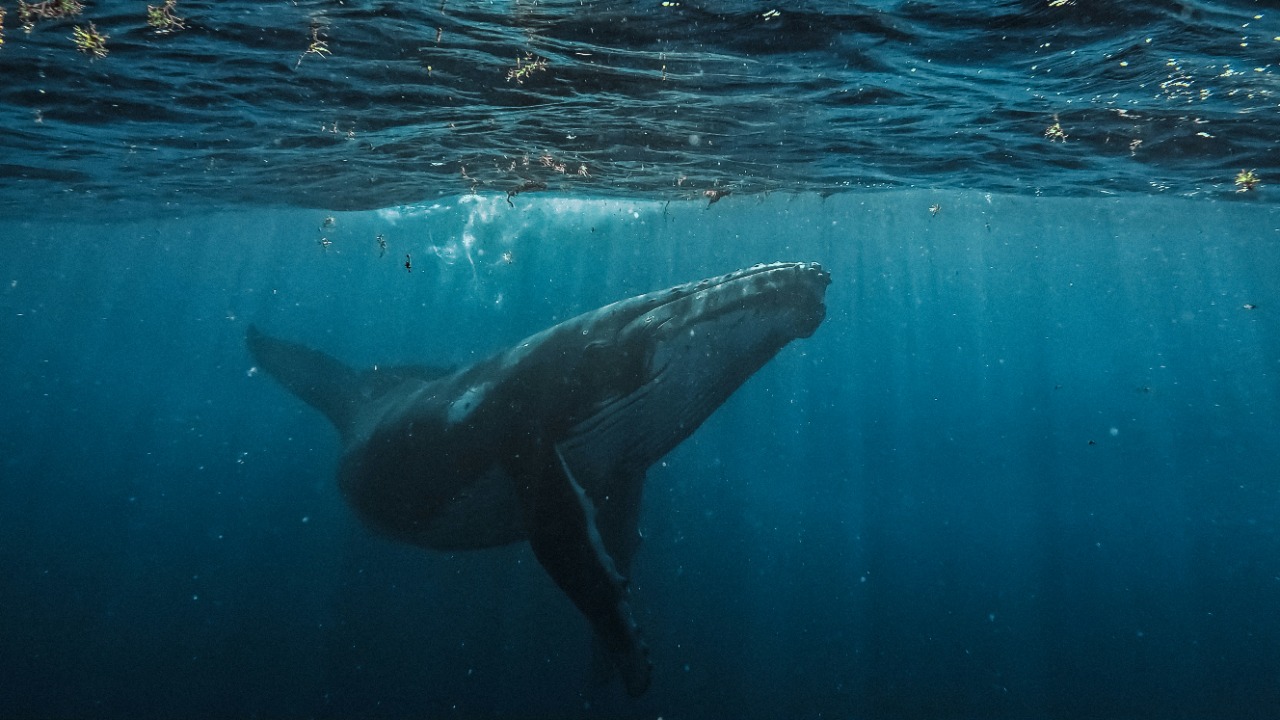
In the deep, dark waters off the Hawaiian islands, a team of researchers embarked on a mission to uncover the dietary habits of the short-finned pilot whale. Their goal was to determine the daily squid consumption of these marine predators. The findings were nothing short of astounding: these whales consume over 77,000 squid annually, a figure that far surpasses previous estimates and underscores the significant role these creatures play in the deep-sea ecosystem.
The Short-Finned Pilot Whale: A Deep-Sea Predator
Short-finned pilot whales are remarkable creatures, perfectly adapted to their deep-sea habitat. These whales are known for their preference for the dark, deep waters where squid, their primary prey, thrive. Their physical adaptations, such as their robust bodies and short, paddle-like fins, enable them to dive to great depths in search of food.
These whales exhibit fascinating behaviors like group foraging and echolocation, which are crucial for their survival in the ocean’s depths. Observations from tagged individuals have provided invaluable insights into their reliance on cephalopods, shedding light on their ecological niche.
Initiating the Study: Curiosity About Daily Squid Intake
The motivation behind this study was to quantify the squid consumption of pilot whales, a task that has been challenging due to the whales’ deep-sea habitat. Previous estimates of their diet were likely underestimated due to the difficulty in observing their feeding habits.
The research team hypothesized that these whales play a significant role in squid population dynamics off Hawaii. This led to the core question of the study: how many squid do pilot whales eat each day? This question set the stage for the tagging effort.
Tagging Eight Pilot Whales in Hawai’i
The research team tagged eight short-finned pilot whales using non-invasive suction-cup tags. These tags allowed the researchers to monitor the whales’ dives and feeding habits. The whales were selected based on specific criteria to ensure a representative sample of the pod dynamics in Hawaiian waters.
The tagging of these whales was a pivotal step in the data collection process, providing the researchers with real-time data on the whales’ foraging behavior.
Following the Whales into the Darkness
Thanks to advanced tracking technology, the researchers were able to follow the tagged whales’ movements into the deep, lightless zones of the ocean. This was no easy task, as real-time data transmission from these remote dives posed significant challenges.
The tags were equipped with bioacoustic and movement sensors, which provided invaluable data on the whales’ hunting patterns. The findings from following them into the darkness revealed that these whales are primarily nocturnal hunters.
Unveiling the Astounding Consumption Figures
One of the most striking findings of the study was that each short-finned pilot whale in Hawaii consumes over 77,000 squid a year. This figure was calculated from tag data on dive frequency and prey capture rates. The daily breakdown implied by this annual total starkly contrasts with earlier, vague estimates.
This unbelievable discovery not only reshapes our understanding of the diet of these whales but also underscores their significant role in the deep-sea ecosystem.
Implications for Squid Populations and Whale Health
The consumption of over 77,000 squid per whale annually has significant implications for local cephalopod stocks in Hawaiian waters. This high intake level could potentially impact the health and population stability of the whales themselves.
These findings provide broader insights into the balance of the ecosystem. The astounding results of this study underscore the importance of understanding the dietary habits of marine predators and their impact on the ecosystem.
More from MorningOverview